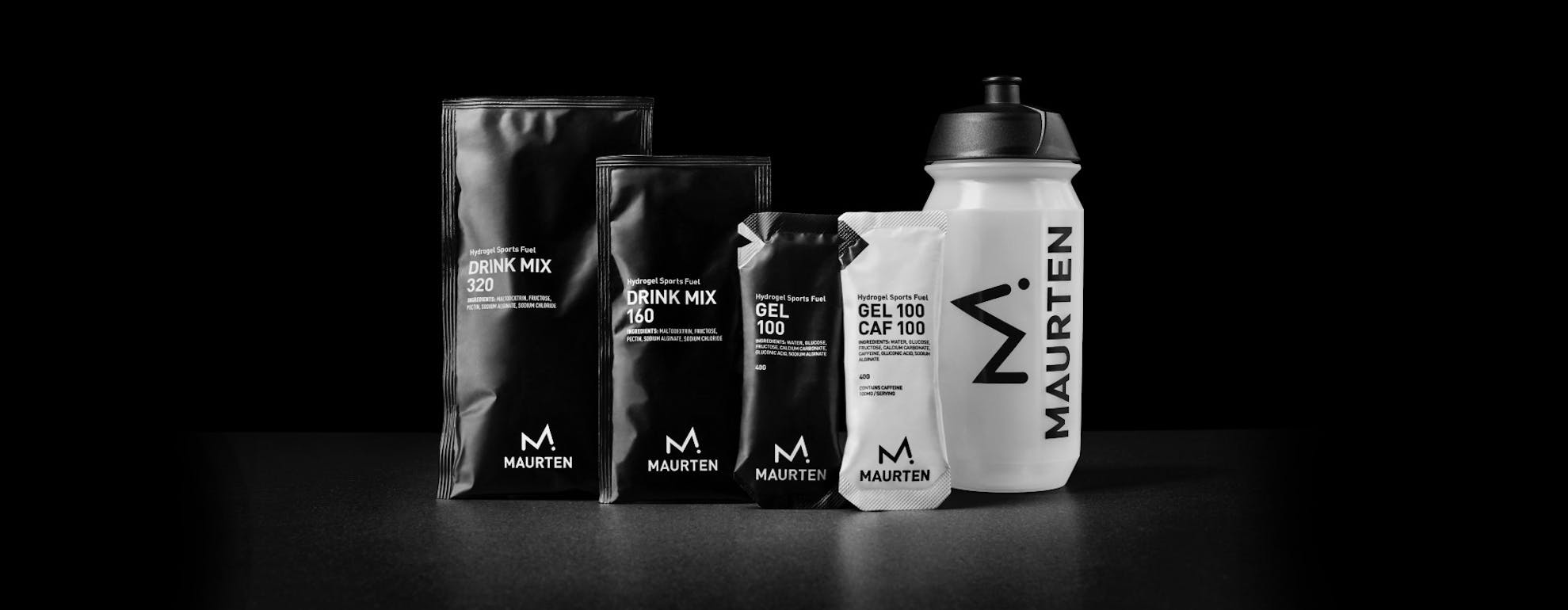
Maurten: How to Fuel for Performance
Fuelling for running — it's a personal thing
ㅤ
Maurten know that sports fuel is not something you save for race day.
It's a process of understanding — through training — what works and what your body can tolerate. What you consume in the race is the result of practise and planning. By the time you cross the start line you should know what work. But it's more than simply using what you like the taste of. Fuelling matters at a deeper level.
ㅤ
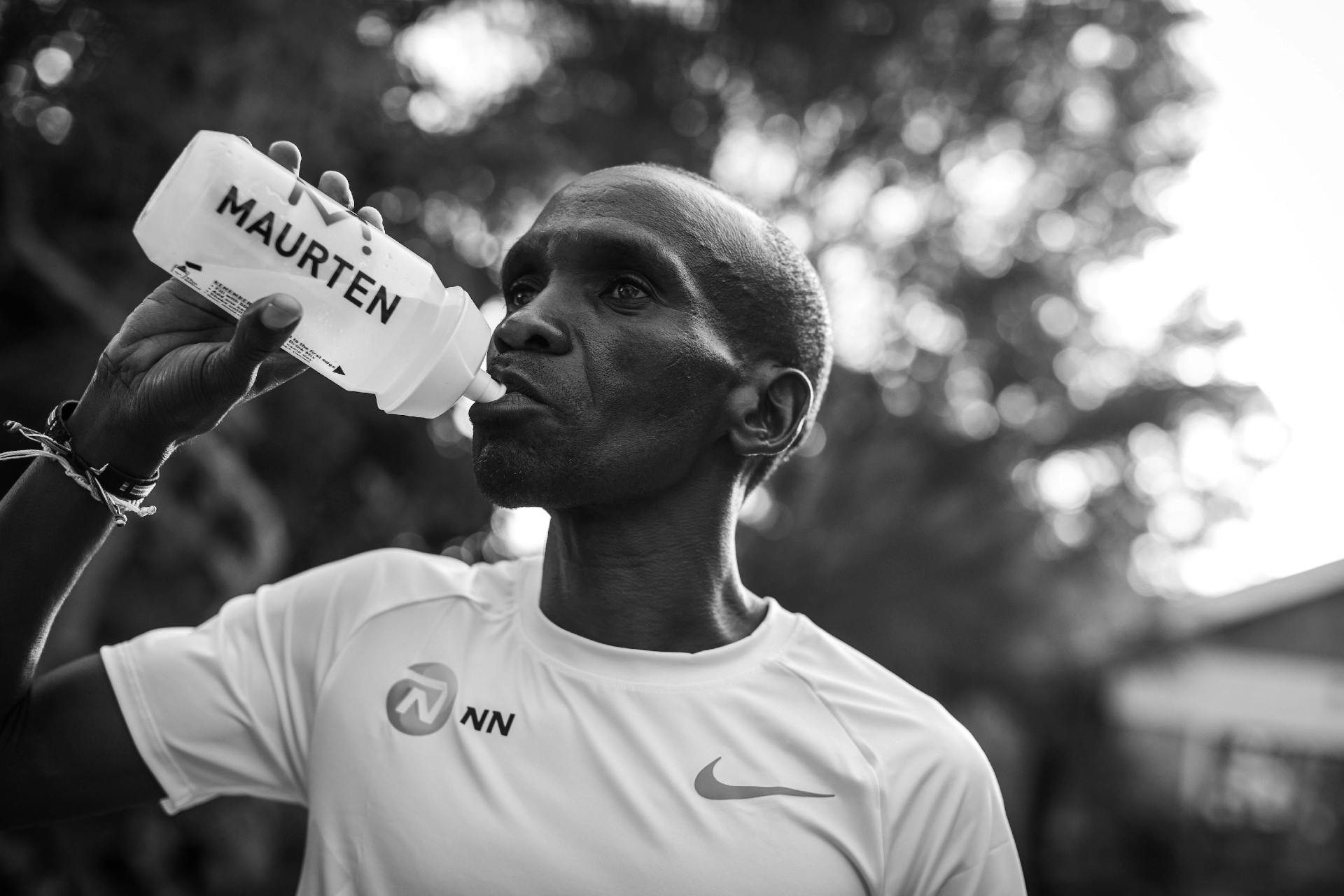
ㅤ
But fuelling is unique. How you learn to fuel will be different from the person standing next to you at the race. This article offers you a few simple tips to optimise how you fuel your training and racing.
By fuelling the varied tempos and intensities of your training sessions properly it helps your body to adapt faster to the process of becoming a runner. Each session is an incremental gain on that journey to race day.
It's the first thing that every runner will learn and is echoed by the great marathon runner Eliud Kipchoge — what you do in training is what you do in the race. In other words, don't try anything for the first time on race day. Treat that first day of training for a big race goal like a start line in its own right. The work starts here — to understand what fuel your body can tolerate and how many carbohydrates per hour will see you finish strong. A fuelling diary is a useful addition to you training toolkit for this.
Sports fuel is supported by science and works alongside real food — not as a replacement. Some training sessions — longer or more intense — rely heavily on the specific composition of sports nutrition. Others less so. Not every session is a duration or intensity that requires sports nutrition and fuelling. In general, training under 60 minutes can be achieved with the glycogen already stored in the muscles, supplemented with water. During harder interval sessions it can be helpful to take short sips of Maurten Drink Mix 160 in the rest and recovery phases of the workout. For workouts that don’t require in-session fuelling the emphasis should be on adequate carbohydrate during the pre-exercise, warm-up periods, and immediately after — perhaps with a Maurten Solid.
ㅤ
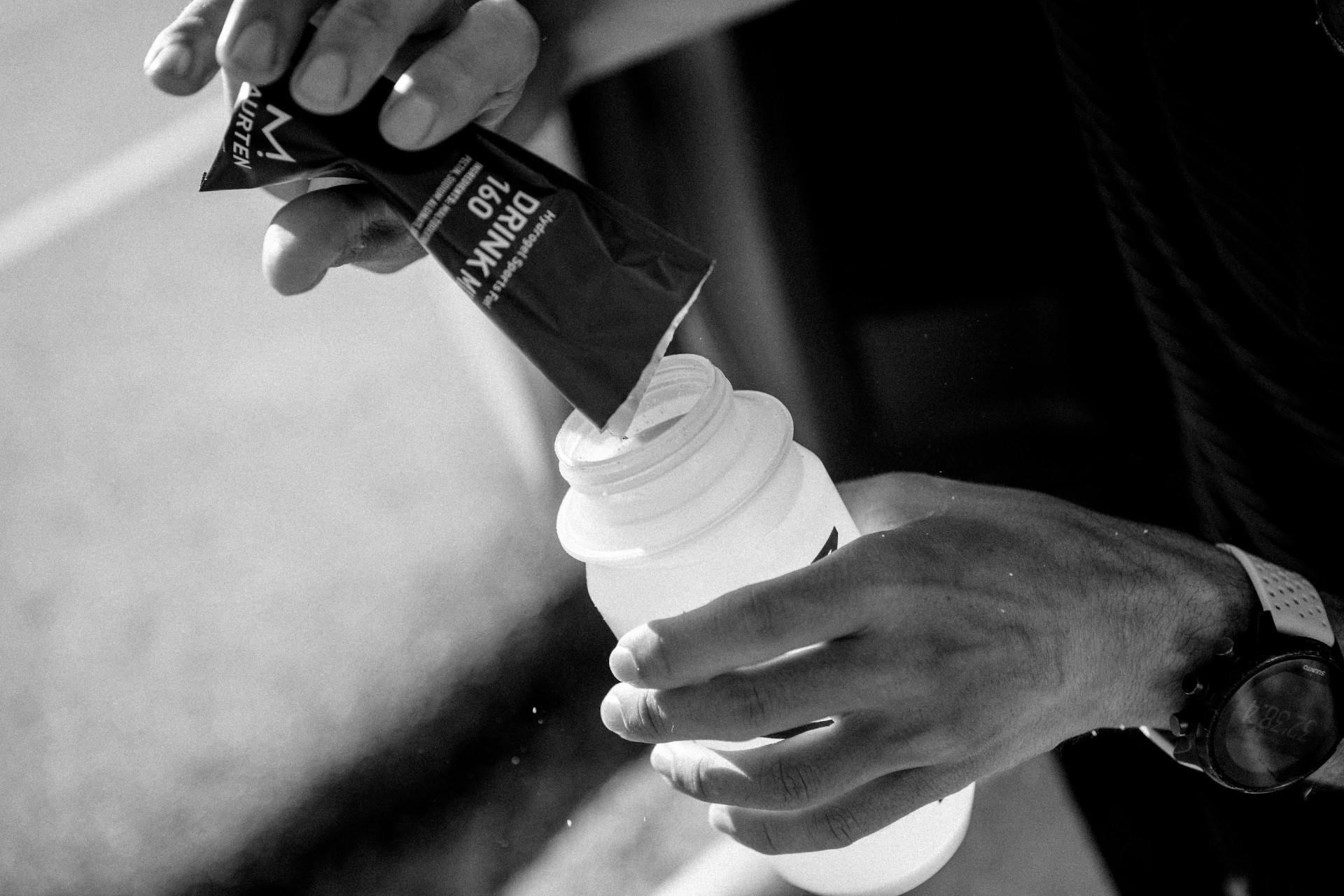
ㅤ
Good race day fuelling starts with more general healthy eating. Increasing exercise is not an excuse to treat your body like a dustbin.
Don't finish a session depleted — recovery starts before you stop. A prolonged training plan (around 16-weeks for a marathon) asks a lot of from your body. Repeatedly finishing training in a depleted state will negatively impact your long-term progress, so recognise the signs. Training will leave you tired — especially as mileage increases — but it shouldn't leave you feeling empty, weak or nauseous. Avoid playing catch-up. To finish a training session strong and to start the replenishment of carbohydrate early, maintain a fuelling strategy into the latter stages of your longer runs. If you are able to train on a loop that can include regular fuel stops — ideally mimicking the intervals of race day — that can also be a helpful trick.
ㅤ
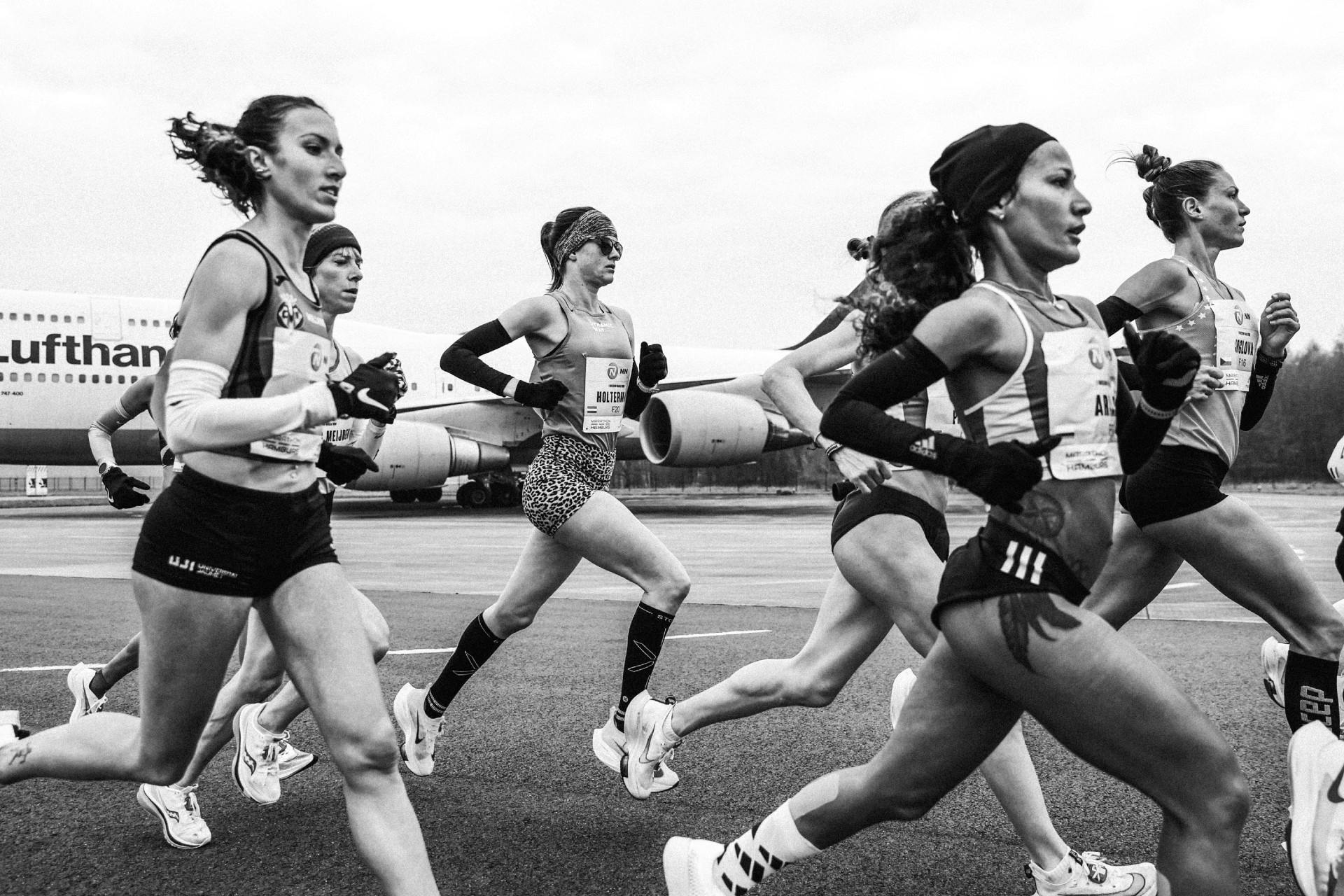
ㅤ
Maurten Fuel Guides
Use the Maurten Fuel Guides as a way to understand the principles of fuelling individual training sessions or races. But again, remember that fuelling and choosing your nutrition strategy is highly personal. The following suggestions of ways to fuel common sessions are a great starting point:
ㅤ
ㅤ
Tempo
20-45 min

Maurten recommends
A sustained run at moderate intensity or a little slower than the race pace you are training for. The session should not be extremely fatiguing or exhausting. No fueling required during the main set or cool down.

Long Run
40-120 min for track runners
70-160 min for long-distance runners
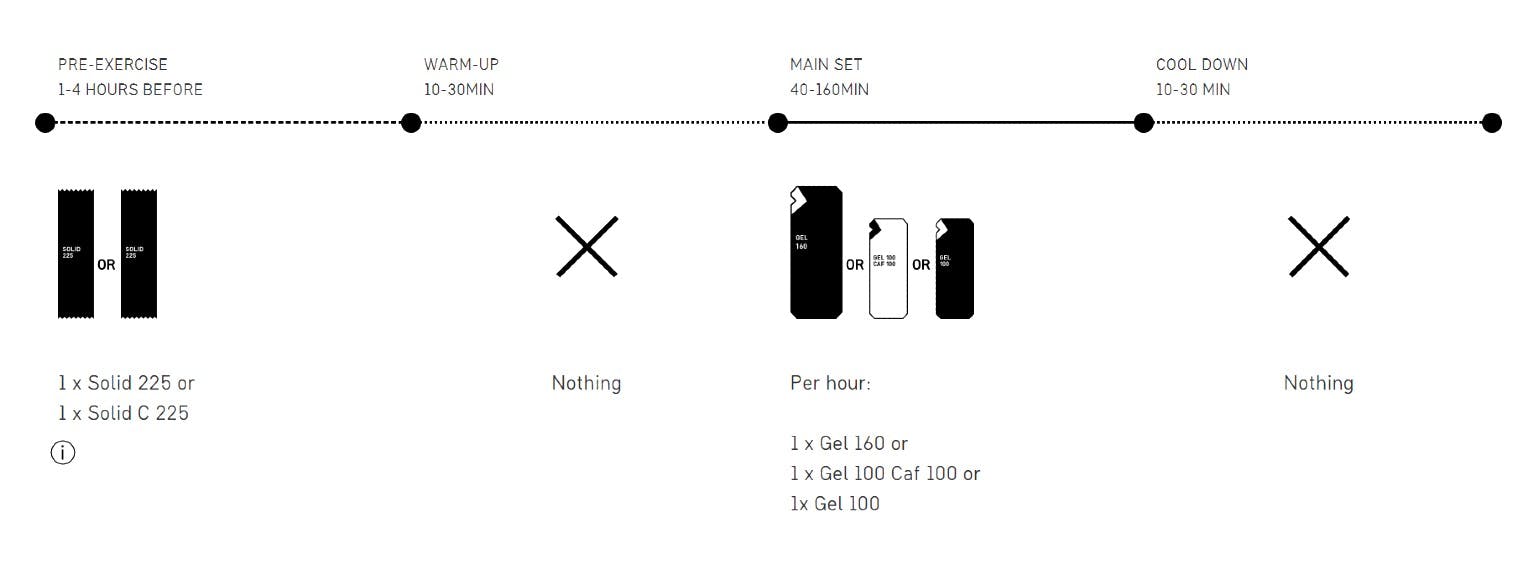
Maurten recommends
Low intensity running that’s slower than marathon pace, but not necessarily constant for the whole session. More commonly used for marathon training plans.

Half marathon

Maurten recommends
Based on two (2x Gel160) to three (3x Gel100) gels in total, equivalent to 75-80g of carbohydrates total:
| TIME | MIN/KM (mins per kilometre) | G/H (grams per hour) |
| Sub 75 min | 3:33 min/km | 60-64 g/h |
| Sub 90 min | 4:16 min/km | 50-53 g/h |
| Sub 105 min | 4:59 min/km | 43-46 g/h |
| Sub 120 min | 5:40 min/km | 38-40 g/h |
| Sub 135 min | 6:24 min/km | 33-36 g/h |

Marathon

Maurten recommends
Based on five (GEL160) to seven (GEL100) GELs in total - or 175-200g of carbohydrate:
| TIME | MIN/KM (mins per kilometre) | G/H (grams per hour) |
| Sub 2:30 | 3:33 min/km | 70-80 g/h = 1x every 20 min |
| Sub 3:00 | 4:16 min/km | 58-67 g/h = 1x every 25 min |
| Sub 3:30 | 4:59 min/km | 50-57 g/h = 1x every 30 min |
| Sub 4:00 | 5:40 min/km | 44-50 g/h = 1x every 35 min |
| Sub 4:30 | 6:24 min/km | 39-44 g/h = 1x every 40 min |


ㅤ
Why should I use sports nutrition with Caffeine?
While studies have suggested that caffeine could promote alertness and reduce perceived effort, and that these are attractive properties in sport, caffeine can’t be said to enhance performance. Reported benefits are highly nuanced and tolerance to caffeine can vary greatly between individuals based on, amongst other things, body composition, dosage and timing Caffeine effectiveness is dose-dependent. The response is highly individual and therefore it should not simply be considered that more is better. Caffeine is rapidly absorbed in the blood within 5 –15min, and peaks within 45–90 min (half-life 180–300min). Developing a nutritional strategy for races or key sessions is complex. Caffeine absorption and metabolizing rate varies between individuals. There are two key factors that should be considered: 1) your body weight; and 2) your previous exposure to caffeine.
ㅤ
What’s the difference between Maurten Gel 100 and Gel 160?
Gel 100 and Gel 160 use the same patented Maurten Hydrogel Technology with the same ratio of fructose and glucose — 0.8:1. Gel 100 has 25 grams of carbohydrates and Gel 160 has 40 grams. Gel 160 is well suited to longer endurance races and sessions where fueling opportunities are less frequent. The larger format enables athletes to carry fewer sachets but still benefit from the same proven hydrogel performance. Both sizes are interchangeable, depending on the training or racing situation. It’s a system that enables athletes to fine-tune their fuelling strategy.
ㅤ
Understanding Hydrogel Technology
Maurten Hydrogel Technology is based on only natural ingredients — no colours, no preservatives, and no flavours. Hydrogel encapsulates the carbohydrate, enabling smooth transportation through the stomach to the intestine where it is absorbed. The structure of Maurten Gels is different. Easier to consume. Cleaner. Forget traditional syrups — this is the gel. Maurten Drink Mixes turn into a hydrogel upon meeting the acidity of the stomach. This breakthrough delivery in fuelling helps to prevent the sloshing sensation of liquid in the gut that can undermine performance. For this reason, Maurten Drink Mix is often the fuelling method of choice for elite marathon runners. Maurten has fuelled the fastest men's and women's marathon times in history.
ㅤ
This article was written by Ross Lovell.
ㅤ
Keen to learn more about fuelling for performance and adventures? Then check out our Nutrition category for more handy tips, advice and recipes.
Welcome
Welcome to the SportsShoes Nutrition Hub! We’ve teamed up with the experts to bring you the very best advice on the best foods to fuel you and your adventures.
Read More
Share this
Featured Articles
View All